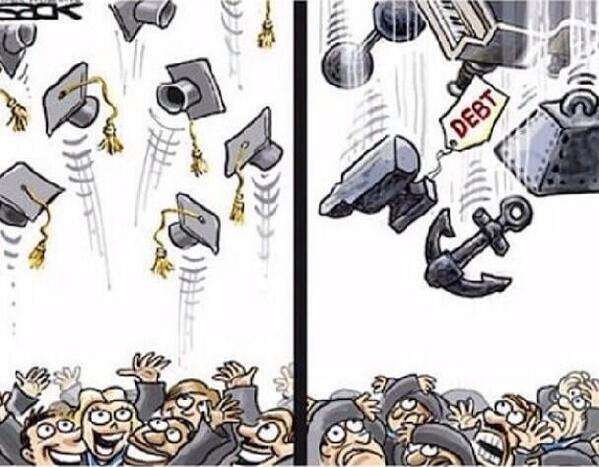Is College Worth The Cost?
adUnit = document.getElementById("google-ads-npKN");
google_ad_client = "ca-pub-1897954795849722";
adUnit = document.getElementById("google-ads-npKN");
adWidth = adUnit.offsetWidth;
if ( adWidth >= 999999 ) {
/* GETTING THE FIRST IF OUT OF THE WAY */
} else {
google_ad_slot = "0";
adUnit.style.display = "none";
}
By Jeff Paul
The individual debt for college graduates in the United States is now above $30,000. Meanwhile, all of the world’s knowledge is nearly free because of the Internet. And we’re transitioning from a jobs economy to a skills economy. So we’re at a unique crossroads that creates a new paradigm for teenagers and their parents where college may not be a guaranteed path to a better life. But what choices do we have?
My oldest son is 18. He was homeschooled and has no plans to go to college. Instead of formal school, he traveled throughout his teens with us as a family and with Project World School. He’s already visited dozens of countries. Along the way, he acquired certifications for scuba diving, driving, and as a surf lifeguard — the only three tests he’s ever taken. He’s also started a few side hustles and learned skills like audio and video editing, blogging, and construction. He still doesn’t know what he wants to do (besides travel) for his career. And that’s okay with me.
First, I’m not against college. College is a fine place for young people to grow and learn and build important networks of friends and colleagues. Yet, because the cost has gotten so out of hand for 4-year degrees, it’s simply a matter of doing a cost-benefit analysis (systematic process for calculating and comparing benefits and costs of a decision) based on the needs and desires of each individual student. Applying to college is only one way for teens to learn and grow after high school. Yet, in the current environment, some alternatives to college may be more fruitful.
Author and businessman James Altucher has been an outspoken advocate for skipping college. He’s even bribed his children not to go, to no avail. But he’s become a leading voice of why college is not necessary for success and what alternatives may be more valuable to pursue. Watch the video below for a quick overview of his take on college:
Altucher’s basic argument is that the cost of college has gone up much faster than inflation and that college debt levels now amount to years of indentured servitude for young people. He claims there are better, cheaper ways for young people to gain skills and knowledge and find success in the economy rather than starting off with a degree and debt. Additionally, he says that even if people still choose to go to college after a couple of years exploring alternatives, they’ll have a much better appreciation for the value of money and debt. So there is little downside for teens to broaden their horizons before getting into student debt.
Cost-Benefit Analysis
The average cost of college plus living expenses is over $20,000 per year. Here are the average tuition costs followed by the average cost of room and board for college students.
And according to College Data the cost for room and board is over $10,000 per year:
The College Board reports that the average cost of room and board in 2017–2018 ranged from $10,800 at four-year public schools to $12,210 at private schools.
This $20,000 can be spent doing something else. By starting a job or a business, young people can turn that annual expense into income, all while learning priceless skills and developing an understanding of the value of money.
Here are just a four alternatives to college worth exploring. Their potential rewards may exceed the benefits of a college degree.
googletag.cmd.push(function() { googletag.display('div-gpt-ad-1470694951173-5'); });
(deployads = window.deployads || ).push({});

